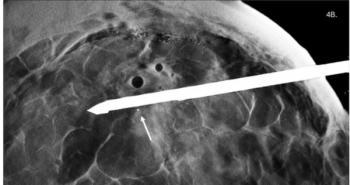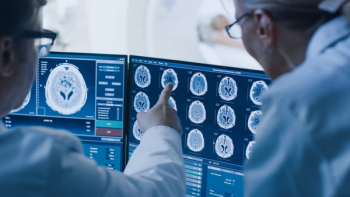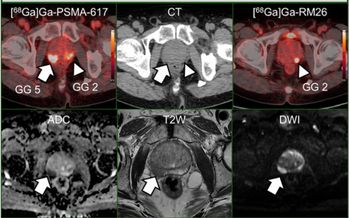
Marconi schedules launch of expandable16-slice CT scanner
By Robert BruceMarconi Medical Systems will introduce the first 16-slice CT scannerexpandable to 32 slices and beyondbut the new version of the Mx8000 won't be ready to ship for a year and a half.The company is introducing the 16-slice scanner now
By Robert Bruce
Marconi Medical Systems will introduce the first 16-slice CT scannerexpandable to 32 slices and beyondbut the new version of the Mx8000 won't be ready to ship for a year and a half.
The company is introducing the 16-slice scanner now because it is confident about the technology, said Michael Sims, Marconi's CT director.
"We think other companies' announcements are imminent, too, but not 16 slices," he said. "We've learned that any new product takes time for the customer to budget and investigate. This gives a security statement to our customers. We like to talk to the customer so we can sell it next year." The key piece of the scanner technology is a tiny application-specific integrated circuit (ASIC) chip, which transfers data from the detector array at a gigabit per second, according to Sims. Current transfer averages 180 megabits per second. Without the ASIC chip, the 16-slice detector would produce more data than the system could handle, he said.
"We engineered the chips, but the fabrication was done by a subcontractor," Sims said.
Eliezer Tokman, the company's senior vice president of product strategies, is another key player in the multislice development. Tokman moved to Marconi from the Israeli company Elscint, which was split up and sold piecemeal to GE and Marconi (formerly Picker) in 1998. Tokman was instrumental in developing the first multislice CT at Elscint in 1992 (SCAN, 2/12/92).
Picker's first Mx8000 was its version of a new multislice CT scanner that Elscint had developed with technology gained through a development deal with Siemens Medical Engineering.
Marconi and Siemens have collaborated on other projects, but Tokman was noncommittal when asked whether Siemens could be expected to announce a 16-slice CT scanner.
"I can't comment on whether you will see Siemens announcing their own machine," Tokman said. "We can't speak for them. We continue to have a fruitful collaboration with Siemens, but in this particular project it was our technology."
Marconi's detector technology was not shared with Siemens, he said.
The Marconi scanner is fast enough, with its combination of speed and data retrieval, to compete with electron-beam CT in cardiac vascular imaging, according to the company.
"Cardiac is the first application that can take advantage of this detector, but you can also have better results in other applications," Sims said. "For instance, low-dose lung screening can also be done."
Marconi's list price for the current quad-slice Mx8000 is about
$1 million, he said. The new version will cost about $350,000 more. Upgrades for the global installed base from the quad-slice to the 16-slice will be $350,000 to $400,000. The process to upgrade the dual to 16-slice is similar. The detector can be replaced in the field, he said, but it may be easier to wheel in major parts.
Although the detector, called "Infinite," will first be released with a 16-slice capability, Marconi could eventually expand the technology to handle more than 32 slices, Tokman said.
"It's hard to say what the limit is," he said. "Beyond 64 slices you need to go to a different technology."
Newsletter
Stay at the forefront of radiology with the Diagnostic Imaging newsletter, delivering the latest news, clinical insights, and imaging advancements for today’s radiologists.













